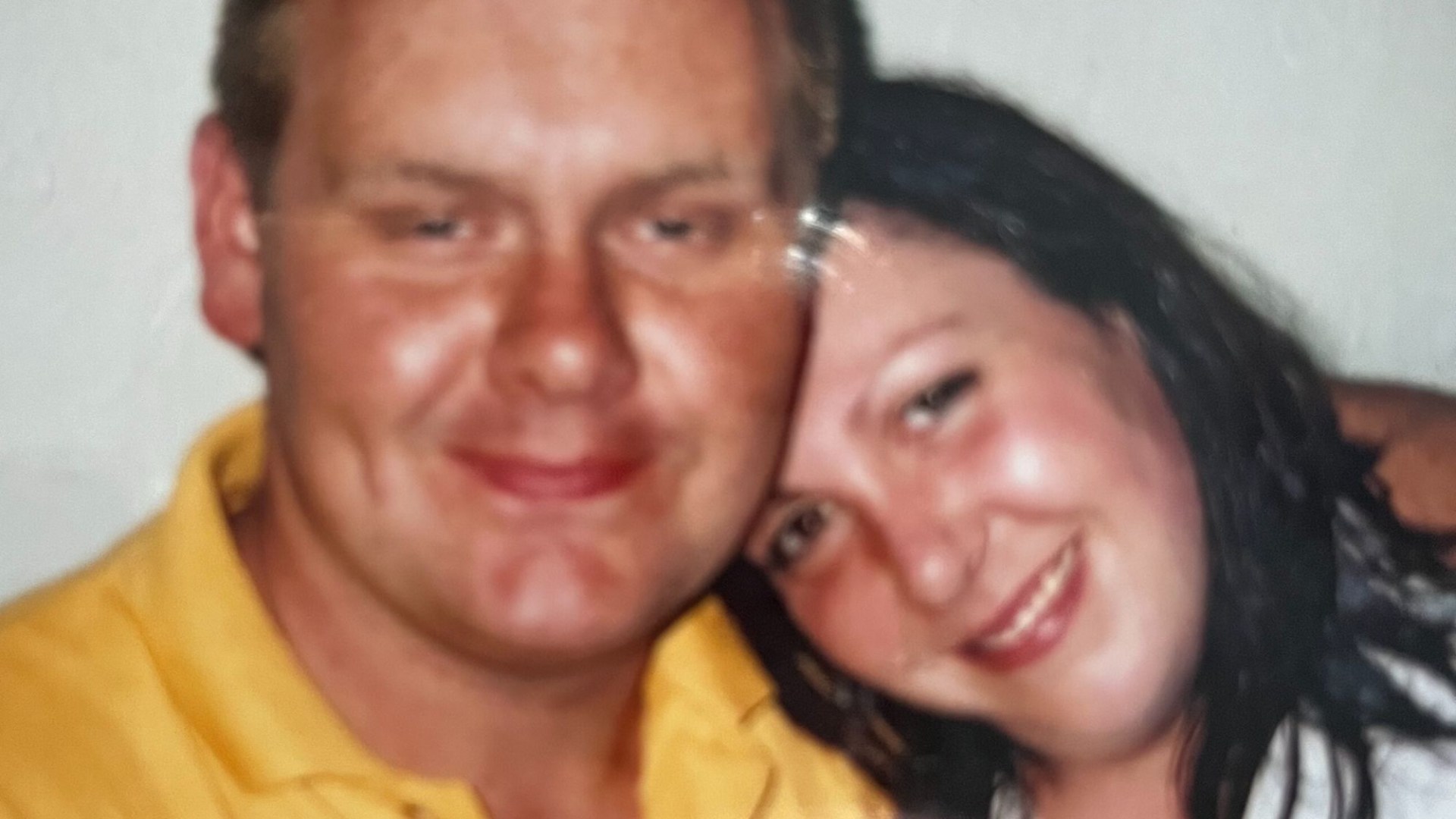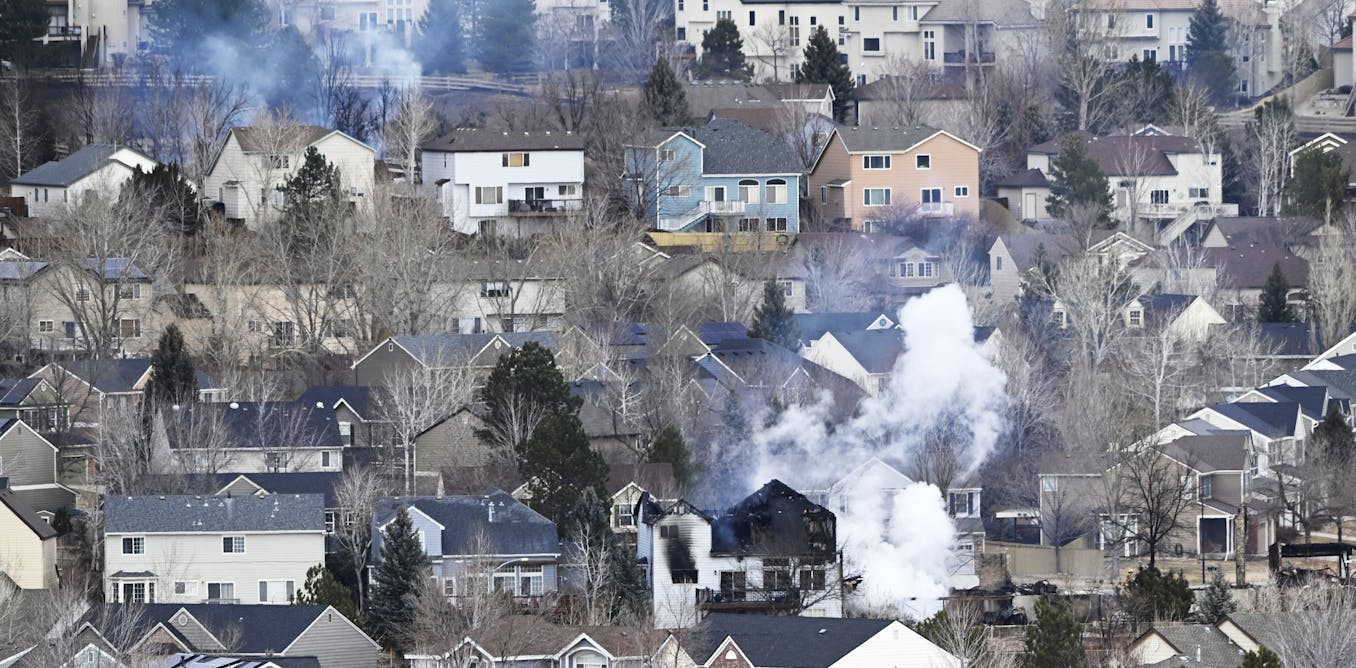AS tractors decorated with twinkling Christmas lights parade through her local village this December, it’s another painful reminder of the loss Samantha Tookey lives with every day.
For leading the procession is her late husband Michael’s own red tractor – a tribute to the former farmer and agricultural contractor, who died in 2020, aged just 46.
10

10
Michael had oesophageal cancer – a rare form of the disease affecting the food pipe.
Samantha believes that had he sought help years earlier for digestive problems, he might still be alive to witness their son, William, turning 16 this Christmas Day.
Instead, she is haunted by the memory of telling William and daughter Rosanna that their father wouldn’t be seeing them again.
She says: “One of the worst things in my life, apart from Michael dying, was having to come home and tell them that daddy had died and to see the look on their faces and hear the screams.
MORE ON OESOPHAGEAL CANCER
“If anybody could hear that, or witness that, they would go to the doctor if they felt at all unsure of any health issues.”
As many of us indulge in rich festive foods this Christmas, Samantha warns those with lingering indigestion or reflux to get checked out.
Her message to those indulging this festive season is clear: “If the indigestion is not just a one-off, go to the doctor.
“If you’re a relative and you’re noticing a loved one with constant heartburn taking antacids like Rennie all the time, make a nuisance of yourself if you have to, but make sure they get seen.”
Samantha started dating Michael in 2002, shortly after moving next to a farm he worked part-time at in County Durham.
Even then, he always had indigestion tablets close to hand.
She says: “He constantly had a strip of Rennie tablets in the pocket of his shirt.
“He was always popping them when we were out, and if we went back to the farmhouse he lived in, he would go straight to the kitchen cupboard to get another strip of Rennies out.
“He would probably go through a strip a day, which had about six tablets in it.”
Michael’s grandma would even bulk-buy packets so he always had a stash in the kitchen.
Samantha put his indigestion down to his irregular working hours on the farm, his habit of going for a pint of lager most evenings, and his love of pies and pastries.
She says: “I thought it was just one of those things he suffered from, probably because of his diet.
“I didn’t think it was anything that could be detrimental to his health.”
I think he kept a lot back because he didn’t want to frighten the kids or worry us
Samantha Tookey
Despite his poor eating habits and some weight around his stomach, he appeared strong and fit.
Working long hours on the farm, he spent summers cutting grass and winters tending to livestock in the freezing cold.
He rarely got sick or visited a doctor.
The couple moved into Samantha’s house in Copley, County Durham, a mile and a half away from his family home in Woodland.
They married in December 2008, the week before their son William was born on Christmas Day.
They also had a daughter, Rosanna, now 13.
During their marriage, Michael’s lifestyle improved and his indigestion seemed to ease.
TROUBLING SIGNS
After the couple separated in 2015, Michael returned to live with his family in Woodland.
They remained close, co-parenting their children and regularly spending time together.
It wasn’t until the summer of 2019 that Samantha noticed he’d lost a significant amount of weight.
She says: “We were at a sports day for the kids when somebody said, ‘Oh, you’re losing a bit of weight, Michael.’
“I looked and thought, yes, he is, but he does in the summer because of his work being more strenuous.”
Looking back, Samantha realises there were more troubling signs.
Michael avoided eating in front of her, preferring to plate up food she’d cooked for him and take it back to his home instead.
The warning signs of oesophageal cancer
OESOPHAGEAL cancer is a cancer of the food pipe.
It affects 9,400 people in the UK every year, and most people are over the age of 60.
Smoking increases your risk of the disease, as does being overweight, drinking alcohol and having conditions like Barrett’s oesophagus, where the cells lining your oesophagus have become abnormal.
Only 12 per cent of patients survive for 10 or more years after being diagnosed.
There are around 8,000 oesophageal cancer deaths in the UK every year – or 22 every day.
Early diagnosis is key, so recognising the symptoms is vital. The most common include:
- Difficulty swallowing
- Unexplained weight loss
- Indigestion or heartburn that doesn’t go away
- Pain in the throat or behind the breastbone
But some people also experience a cough, hoarseness, dark poo, tiredness and food coming back up after swallowing.
Source: Cancer Research UK
In August 2019, he showed up at Samantha’s door looking like a shell of his former self.
The former jewellery designer, 53, recalls: “He just said, ‘Can you take me to the hospital?’.
“I asked what was wrong, and he said, ‘It’s my throat. I can’t swallow anything.’
“He looked scared, but he was very quiet about it.
“I think he kept a lot back because he didn’t want to frighten the kids or worry us.”
At Darlington Memorial Hospital, County Durham, doctors discovered Michael was severely dehydrated and malnourished because he wasn’t eating or drinking.
Scans revealed his oesophagus had completely closed up. He was put on a drip for feeding.
Samantha wondered if it was just a severe infection, like laryngitis, at first.

10

10

10
She says: “You just think, ‘Everything will be alright. He’ll be out in a few days’.”
Medics tried to put a feeding tube down, but his food pipe was too swollen. He was put on a drip for feeding instead.
On August 31, Michael’s 45th birthday, the family got the news they were dreading.
Michael was told he had a form of oesophageal cancer called squamous cell carcinoma.
Samantha says: “It’s not a day you forget.
“It feels like the bottom is falling out of your world because obviously it’s the last thing you want to hear.
“I looked it up and knew the prognosis wasn’t good but I also asked lots of questions and was told there was a treatment plan.
“Michael didn’t know what to ask, or say.”
Because heartburn is such a common ailment, it often gets dismissed or ignored, but it can lead to cancer
Fiona Labrooy
Michael was referred to The James Cook University Hospital in Middlesbrough for further treatment.
From October 2019, he underwent chemotherapy and radiotherapy.
Through his ill health, Michael and Samantha realised the strength of their love for each other.
They decided to give their relationship a second chance and Michael moved back in.
Samantha and the children spent Christmas with her nana, mum, and stepdad.
But it wasn’t like a normal Christmas Day for Michael, who wasn’t well enough to be there with them.
She says: “I remember I brought him Christmas dinner back, but I had to blend it all up like a smooth soup.”
‘It didn’t feel real’
In early 2020, he missed a telephone consultation after falling asleep, and when he tried to call back, he couldn’t speak to anyone.
Covid hit, and any updates became harder.
By May 2020, Michael looked the sickest yet.
Samantha says: “He just didn’t feel very well.
“He was getting a lot of pain at the site of the tumour, which was at the top of his chest, so we felt he needed checking out.”
Despite spending time with him in the hospital, Samantha also had to go home to look after her kids.
On the evening of May 8, she got a call from the hospital to say Michael had taken a turn for the worse. She rushed out to be by his side.

10

10

10
She recalls: “By the time I got there that evening, he was already gone. It didn’t feel real.
“I remember Michael had been worried because he hadn’t been able to find his phone charger.
“I couldn’t find it either, so I’d actually bought him a cheap phone from Argos and was planning to drop it off the next morning, but obviously that never happened.
“I discovered later that he was being prepped to be put into an induced coma when he had a massive hemorrhage.
“I think it was due to damage from the radiotherapy. I think it had gone through his lung and damaged an artery.
“I don’t really know how things got that bad. I couldn’t be at all of his appointments, and I wonder if he knew but didn’t want us to worry.”
This Christmas Day, William turns 16. It’s a celebration, but inevitably it will be tinged with sadness that Michael isn’t there to witness it.
If you see your loved one in discomfort, you should make your voice heard, even if it means having a bit of a falling out
Samantha Tookey
She says: “Michael would be absolutely over the moon.
“At 16, he’d be road legal on a tractor, so Michael would have him behind the wheel and be getting him his tractor license and be so proud of him.
“The thought of other children having to go through what William and Rosanna have gone through is horrendous.
“Michael never went to the doctor. He’d always say, ‘I have to work.’
“If you see your loved one in discomfort, you should make your voice heard, even if it means having a bit of a falling out.
“I know now what a bit of indigestion can lead to, a long way down the line.
“It can lead to your children growing up without a dad.
“I’m speaking out to save a life and to keep a family together.”
This month, Samantha watched a procession of Christmas-decorated tractors file through her local community in County Durham at an event called the Farmer Christmas Fayre and Fairlight Tractor Parade.
Money raised is going towards a number of charities, including Heartburn Cancer UK, which raises awareness of the dangers of persistent heartburn.
‘Heartburn is not normal’
Fiona Labrooy, chief operating officer at Heartburn Cancer UK, says: “Because heartburn – or acid reflux or indigestion, whatever people call it – is such a common ailment, it often gets dismissed or ignored.
“People buy the tablets or medicine, such as Gaviscon or Rennie, each week and just get on with it. But these are meant for the short-term only.
“Not all heartburn is harmless. Not all heartburn is down to having a rich meal and too much beer or eating too late at night.
“We want everyone to know that persistent heartburn is not normal.
“It can lead to cancer, and it can be a sign of cancer or a pre-cancerous condition that can be monitored for any worrying early cell changes.
“Anyone of any age who has persistent heartburn – that keeps coming back for three weeks or more – should go to the doctor and ask for it to be fully checked out.
“And anyone who’s given medicines, such as omeprazole, by their doctor, should book another appointment if it doesn’t solve their problem or if the symptoms come back.
“If issues are found early, something can often be done.
“The people we love don’t die too soon. They’re at our Christmas dinner tables and our birthday parties.
“By knowing and reacting to the warning signs, people stay alive.”

10

10




